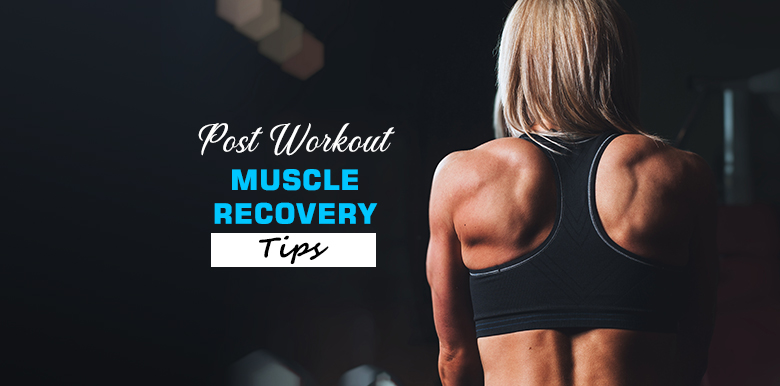To become stronger and faster you have to push your body harder. But then you need to rest, too.
All workouts, especially tough ones, stress the body. You’re fatiguing, or tiring out, various muscles when you work out, which means you’re causing damage to muscle cells.
Tips that can help muscle recovery –
1. GET PLENTY OF SLEEP

Get plenty of sleep
One of the simplest yet most effective muscle recovery tips is simply to get a good night’s sleep. Contrary to popular belief, you can’t “catch up on” sleep. Your body just doesn’t work that way. You need to get between 7-8 hours of sleep each night. We recommend thinking of sleep as part of your workout and scheduling it just like you would a training session.
2. EAT PROTEIN BEFORE AND AFTER YOUR WORKOUT

Eat protein
Protein is the building block of muscle tissue, and when you’re in the recovery phase of your workout you’ll need a lot of it. Keeping your body properly fueled can be challenging, but with a gym backpack from 6 Pack Fitness you can always have the protein you need close at hand.
3. HYDRATE

Hydrate
Proper hydration makes every function of the human body more efficient. Drinking water during and after your workout helps rid your body of waste products and prevents dehydration. Dehydrated muscles are more likely to be injured and often can result in painful cramps and spasms.
4. CONSIDER TAKING A MAGNESIUM SUPPLEMENT

Magnesium supplements
Low levels of magnesium in the body can cause muscle tension, cramping, and spasms. Magnesium helps speed up recovery by promoting proper muscle and nerve function and boosting your body’s ability to synthesize the proteins that make your muscles grow.
5. STRETCH EVERY DAY

Stretch everyday
One of the best muscle recovery tips that you can follow every time, which was also help prevent future injuries, is stretching. As you exercise your muscles tighten up. Stretching helps you relax muscle tension and decrease soreness the next day.
6. ROLL OUT SORE MUSCLES

Roll out sore muscles
When it comes to muscle recovery tips, foam rollers can be a great help. Using them helps relax muscle tension, break up scar tissue and knots, increase blood flow, and reduce inflammation. We recommend running the roller over your sore muscle groups in the morning when you wake up, before you got to bed, and before your workout (if you have the time).
7. TAKE A COLD BATH

Take a cold bath
Tough workouts don’t have to result in aching muscles. Immersing yourself in cold water immediately after an intense workout session reduces muscle inflammation and soreness. This allows you to return to peak performance faster and lowers your likelihood of missing your next training session. Spending time focusing on rest and recovery can pay huge dividends beyond additional training time. It can actually improve your performance and help you achieve your fitness goals faster.
Recovery isn’t a one-step process. It’s basically everything you do when you’re not working out. Do it right, and your time working out becomes worth so much more.
